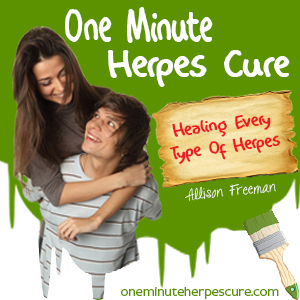Herpes is practically a household word. From TV to movies to the internet, herpes is all around us. For some reason, herpes is the STD of choice for ridiculing and humiliating just about anyone. Sadly, the prevalence of herpes in our society doesn’t mean that we’re equally informed and educated on the true nature of this particular STD. There’s a great deal of misconceptions circulating in the airwaves surrounding herpes.
Our website will feature a series of articles on herpes with the intention of shedding some light on the true nature of the beast. This article in particular will focus on the Herpes Simplex Virus (HSV) as the root cause of all herpes variants.
The Basics: Herpes Simplex Virus (HSV) 1 and 2
The herpes simplex virus is an infection that causes herpes. Herpes can appear in various parts of the body, most commonly on the genitals or mouth.
There are two types of the herpes simplex virus. HSV-1, also known as oral herpes, can cause cold sores and fever blisters around the mouth and on the face. And HSV-2, generally responsible for genital herpes outbreaks.
Brief History of Herpes
 The herpes simplex virus is an ancient disease, dating as far back as the ancient Greek times. The word “herpes” is a Greek word meaning “to creep” or “to crawl.” It’s how ancient Greeks described the way skin lesions spread.
The herpes simplex virus is an ancient disease, dating as far back as the ancient Greek times. The word “herpes” is a Greek word meaning “to creep” or “to crawl.” It’s how ancient Greeks described the way skin lesions spread.
Shakespeare is also believed to have been familiar with recurrent herpes simplex lesions and their transmission. In Romeo and Juliet, he writes Queen Mab to say “O’er ladies lips, who straight on kisses dream, which oft the angry Mab with blisters plagues, because their breaths with sweetmeats tainted are.”
Essentially, what this tells us is that herpes is by no means a new disease. Our ancestors have treated and cured this disease by utilizing homeopathic treatments since way back when.
The advent of antiviral medications in treating herpes has only been prevalent in recent times. But sadly, modern medicine have yet to find a method of treatment which addresses the root cause of herpes. Conventional medicine only serve to mask the symptoms while practically ignoring the true culprit; the herpes simplex virus.
How HSV Spreads

image illustration: wikipedia
The herpes simplex virus is a contagious virus that can be passed from person to person through direct contact. Children will often contract HSV-1 from early contact with an infected adult. They then carry the virus with them for the rest of their life.
Infection with HSV-1 can happen from general interactions such as eating from the same utensils, sharing lip balm, or kissing. The virus spreads more quickly when an infected person is experiencing an outbreak. Additionally, it is possible to get genital herpes from HSV-1 if the individual has had cold sores and performed sexual activities during that time.
HSV-2 is contracted through forms of sexual contact with a person who has HSV-2. It is estimated that around 20 percent of sexually active adults within the United States have been infected with HSV-2.
While HSV-2 infections are spread by coming into contact with a herpes sore, most people get HSV-1 from an infected person who is asymptomatic, or does not have sores.
Are you at risk?
Keep in mind that anyone can be infected with HSV, regardless of age. Your risk is determined almost entirely based on exposure to the infection.
In cases of sexually transmitted HSV, people are more at risk when they participate in risky sexual behavior without the use of protection.
Other risk factors for HSV-2 include:
• Having multiple sex partners
• Being female
• Having another sexually transmitted infection (STI)
• Having a weakened immune system
If a mother is having an outbreak of genital herpes at the time of childbirth, it can expose the baby to both types of HSV, and may put them at risk for serious complications.
HSV Symptoms
It is important to understand that although someone may not have visible sores or symptoms, they may still be infected by the virus and may transmit the virus to others. Some of the symptoms associated with this virus include:
• Blistering sores (in the mouth or on the genitals)
• Pain during urination (genital herpes)
• Itching
Additionally, you may experience many symptoms that are similar to the flu. These symptoms can include fever, swollen lymph nodes, headaches, tiredness, and lack of appetite. HSV can also spread to the eyes, causing a condition called herpes keratitis. This can cause symptoms such as eye pain, discharge, and a gritty feeling in the eye.
HSV Prevention
Prevention is primary! Take precautionary measures to avoid becoming infected, or to prevent spreading HSV to another person. Arm yourself with the necessary knowledge of HSV.
If you’re living with HSV and is experiencing an outbreak, try to avoid direct physical contact with other people. Do not share any items that can pass the virus around, such as cups, towels, silverware, clothing, makeup, or lip balm.
During an outbreak, infected individuals should not participate in oral sex, kissing, or any other type of sexual activity.
If the individual is not experiencing symptoms but has previously been diagnosed with the virus, a condom should be used during intercourse.
Although a condom may be used, it may still be possible to pass herpes to your partner from uncovered skin. Women who are pregnant and infected may have to take medicine to prevent the virus from infecting their unborn babies.
HSV Treatments?
It is generally believed that, at present, there is no way to completely eradicate the HSV from our system. The virus will remain dormant in the body and can reappear at any time.
While this is up for debate, what’s certain is that conventional medical treatments only focus on getting rid of sores and limiting outbreaks, although there are some side effects associated with them as well.
However, there are some holistic homeopathic treatments that are known to be quite effective in suppressing the virus and reduce the likelihood of transmission to partners. What’s more, they do not carry the same side effects and economical cost associated with taking antiviral medications on a daily basis.








 Saving...
Saving...
Latest Comments